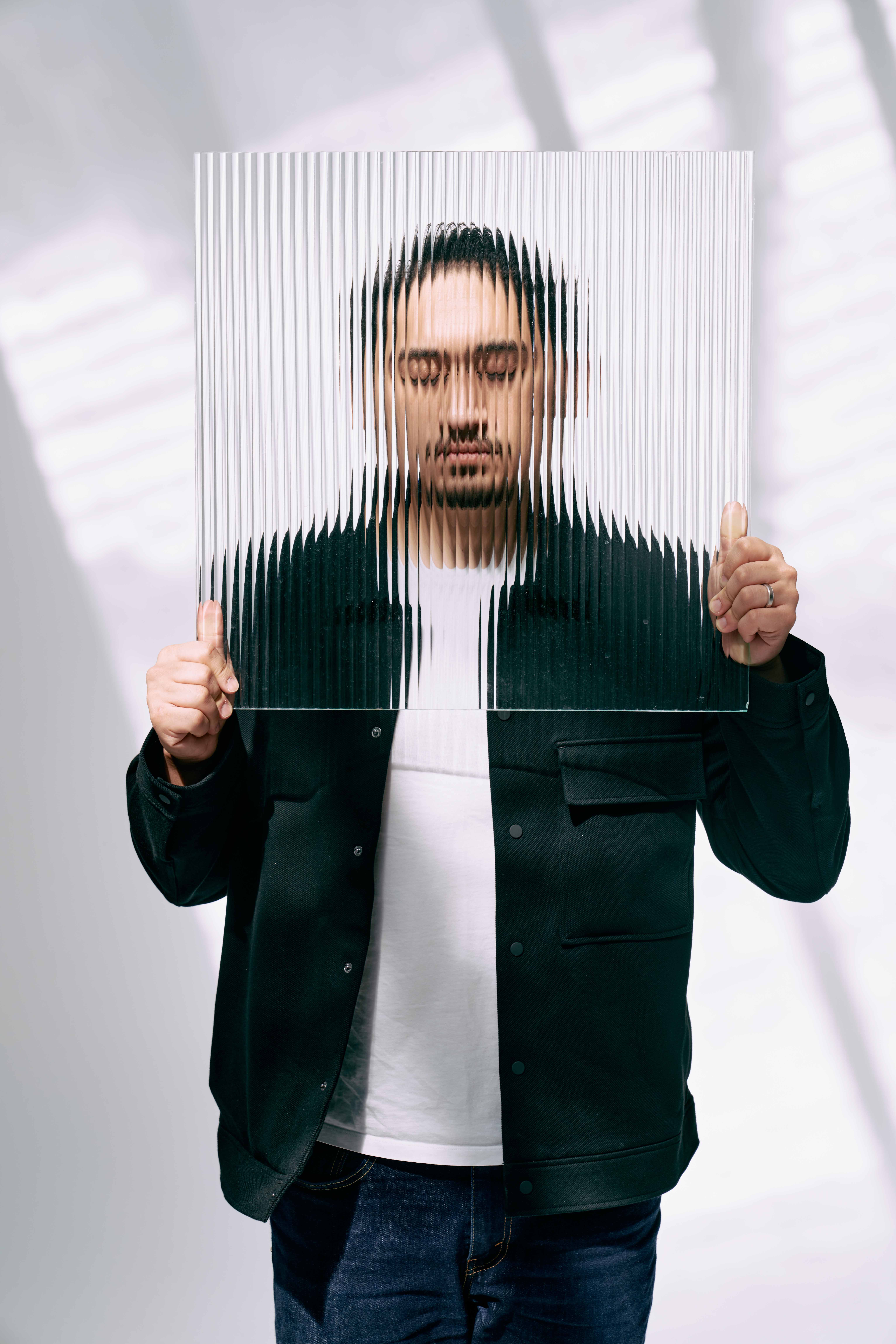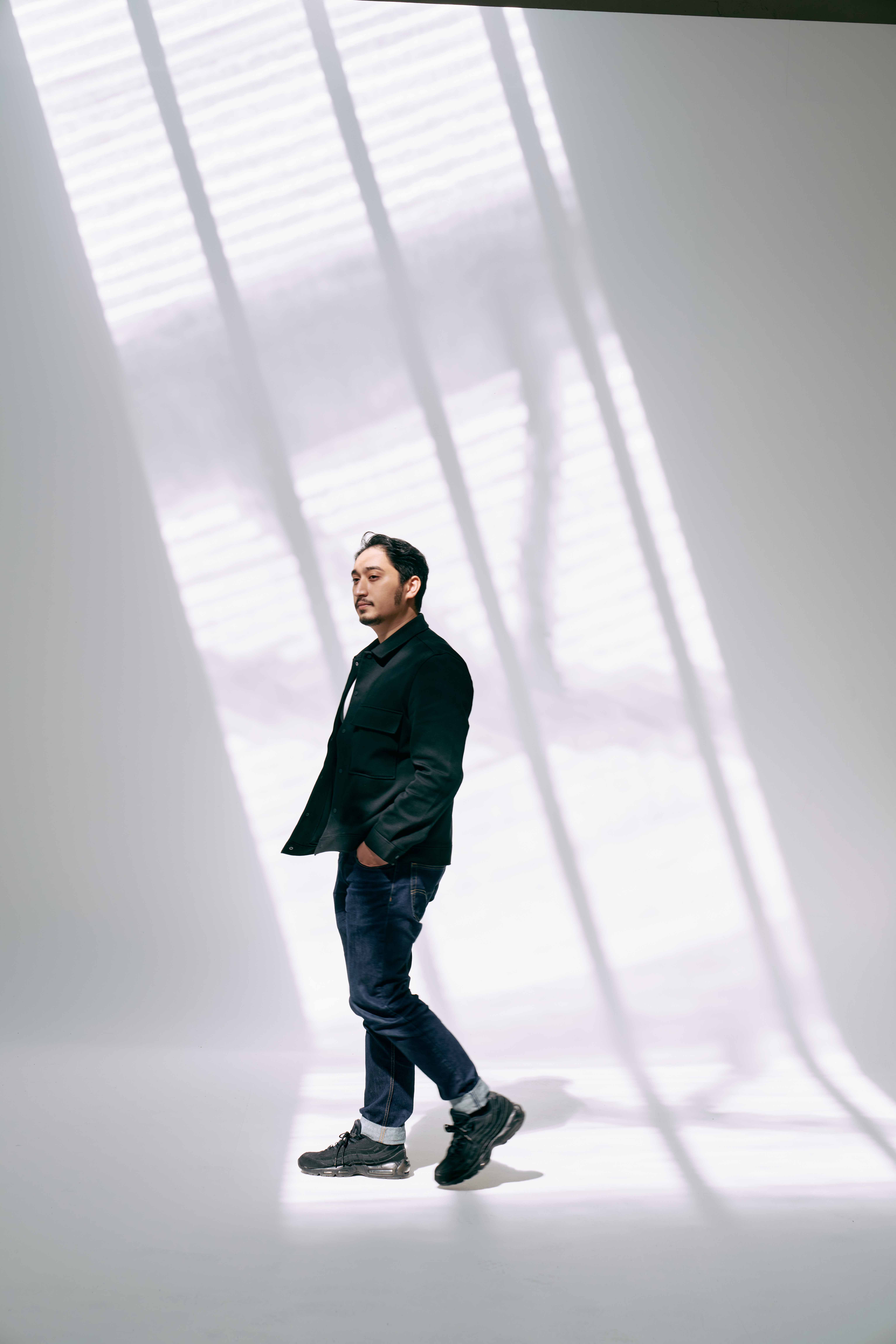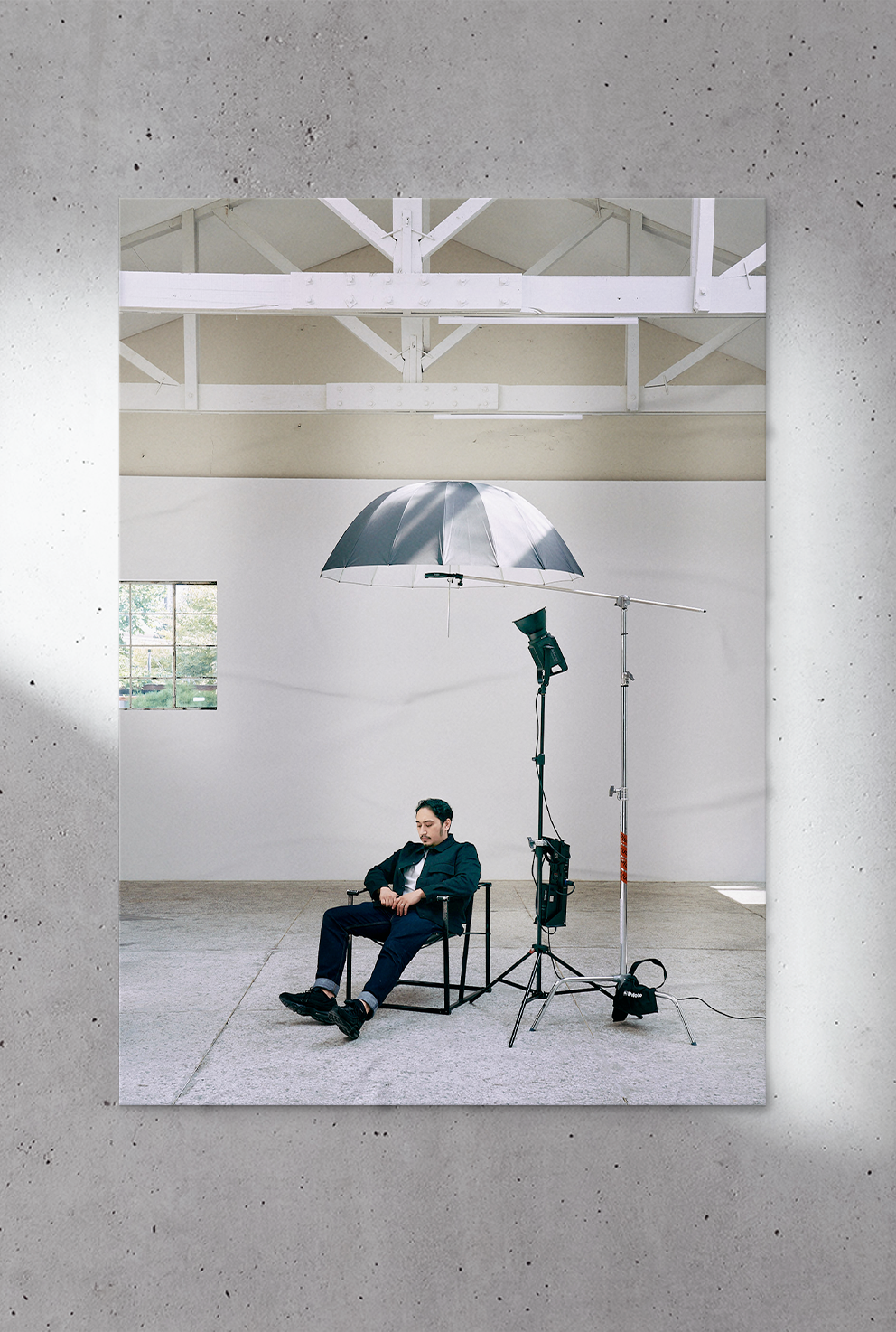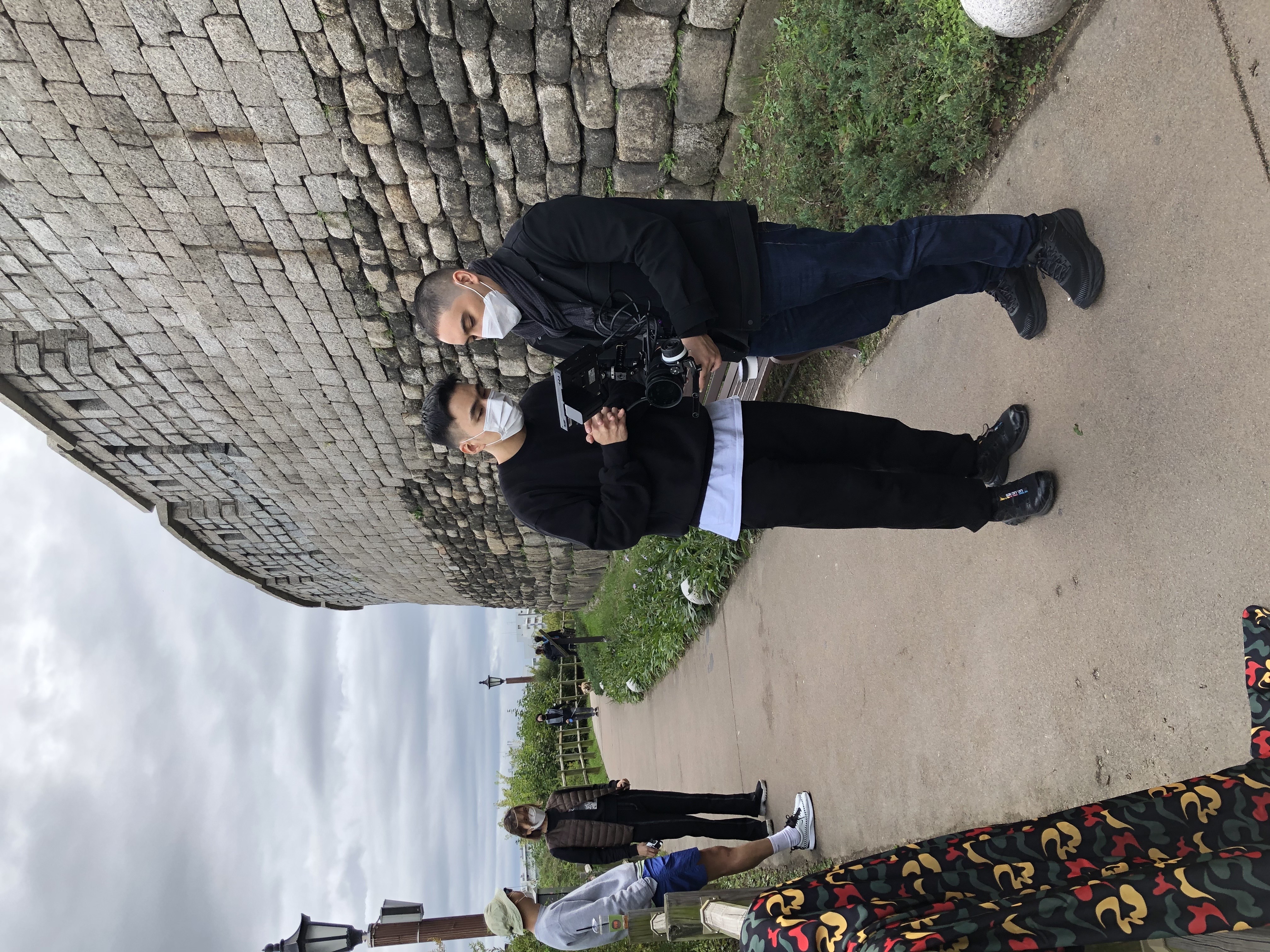Una Storia Commune N.5 <Alexander Isacc>
Photography: Archives from Alexander Isacc
Interview: Solhee Baek



⏩ Click Here for Korean
Solhee Baek
Hey Alex. Can you please tell us a little bit about yourself?
Alexander Isacc
Hey I’m Alex and I grew up in New York and have lived in Korea for 8 years now.
I’m a video director and I have a soft spot for my one and only daughter.
SH
I think your identity goes along with Keener because you seem like a foreigner living in Korea.
AL
To be honest I thought Keener shares stories of Koreans living in different countries who think of themselves as strangers, so when I was asked for an interview, I wondered if I could relate because I’m not Korean.
I used to think that I may be from the most ambiguous group but now, it may sound weird but I can cheat with my own identity.
I’m American and my mom is Korean.
When people come and ask me if I’m Korean, I say I’m not - but my mom thinks that I am because I can speak a little bit of Korean and understand the culture. But that doesn’t make me Korean and I get confusing feelings when I think about it.
SH
You speak Korean well. You say you're not Korean, but I think you're comfortable talking to me.
AL
I was born in the States and lived in Korea for 8 years after graduating from college.
I do feel comfortable speaking in Korean when I talk about my work experience here, but I prefer English when I talk about my childhood.
For example, when I talk about the times when I was in production or when I worked at a broadcasting station, when I almost got scammed in Korea, these stories come out naturally in Korean but not in English. I guess the nuances are implicit in culture.
I am a native English speaker, but English can’t deliver all the small details and the cultural nuances. But at the same time, since I’m not Korean, there’s still some ambiguity in the air.
SH
Are you talking about nationality when you are telling us you’re not Korean?
AL
Yes but no. Koreans literally do not think I’m Korean when I speak to them.
SH
Did you have this kind of uncertain feeling of identity from a young age?
AL
When I grew up in New York, I lived in Korean town so there were so many Koreans around and plus, I went to a Korean church. Most of them were all second-generation Koreans, so even though they couldn’t speak Korean, they all looked alike. Expect me.
I don’t remember much about my childhood but in 5th grade, I began to realize that I was different from everyone else. It wasn’t that I got bullied but I knew I was different.
There were times that I liked being different.
I felt like I belonged somewhere else and not in the place where I was back then.
Since America was such a diverse country, luckily I didn’t feel that way in school.
But when I was surrounded by Koreans, I wasn’t part of them but when I was surrounded by Americans or people from other cultures, they saw me as a Korean. To them I was a Korean, but to Koreans I was an Egyptian.
SH
After you felt the gap, did you try to make any change?
AL
I guess there was some effort, but I never really tried to learn Korean. My Korean American friend didn’t speak Korean so I didn’t feel the need to learn the language either. At that time I was really into basketball so I tried to show them that I wasn’t lacking or I wasn’t any different from them through basketball. I thought that could help improve my self esteem.
SH
It must have been a real tough time for you.
AL
To be honest, I was full of confusion.
My mom is Korean, dad is Egyptian, and I am American.
But I literally knew nothing about Egypt. When I think about the identity that I somewhat have of Egypt and Korea, I like to think of ‘food’ as a metaphor. When I eat Egyptian food I become Egyptian and when I eat Korean food, I become Korean. It’s just like when I eat Indian food when I go to my Indian friend’s house or eat Chinese food at my Chinese friend’s.
SH
It sounds like you have encountered unfamiliar cultural situations from a young age.
What does ‘unfamiliarity’ mean to you?
AL
At first, I thought it was a word about people - “strangers”. As if someone says they are shy around strangers.
I heard a lot of people saying that to me in Korea so I thought Koreans were afraid of meeting strangers. But I was the opposite. I enjoy meeting new people and getting to know them. It’s something that comes out very natural to me.
SH
Do you have such an experience when you ever felt unfamiliar or even uncomfortable with the ‘place’, ‘time’ or ‘life’ you were in?
AL
Yes, sometimes I feel awkward when I’m invited to an event or party because it’s a new and unfamiliar place to me and I don’t know what I should do. Oftentimes I think that I’m not even allowed to be in these kinds of places. I don’t like that feeling but I force myself to overcome those emotions.
SH
“Unfamiliarity” sometimes has a negative vibe to it but I don’t think it is to you Alex.
AL
I guess it was because even though I was always around Koreans, I didn’t feel like a stranger because they were all literally Americans. But if I grew up in Korea, I probably would have felt more like a stranger.
SH
If that’s so, what brought you here to Korea?
AL
At that time I purely came to Korea to learn Korean. I wanted to learn Korean while living in the suburbs in Korea. I hated the fact that my Korean was poor. When I tell my mom is Korean, people assume that I may be good in Korean but I really didn’t like saying I wasn’t.
I lived in Chuncheon for a year and the people there could speak zero English. (I was able to have basic conversations because my minor was Korean language.)
One of the best memories I have was when I was crossing the street, random middle-aged men (we call them ‘ahjussi’) would say “I love you” and pass away. It felt like it came out of pure kindness.
SH
It seems like you had a good first impression of Korea. How is that like now?
AL
Many things have changed while starting life in Seoul. I’ve gone through so much since entering the entertainment team in a broadcasting station as one of the lowest positions in the team. It was a really tough time. I instantly realized I didn’t fit in here. My coworkers would tell me that I won’t be able to work here and that I won’t become a PD only because I’m “different” and that I don’t understand Korean variety shows.
In fact I didn’t even wanted to become a PD but I just wanted to learn something; anything.
I didn’t want to spend the whole night editing like my coworkers, but I did have a desire to learn something new. There was one time when I came to work to edit for a weekend program. The team would almost work all night long for the program so we would take turns to take a shower in the office. I remember that one of my colleagues told me to go first and I did, but right after another colleague came up to me and went hard on me and said why did I take a shower before him. Though I had never been to an army, it literally felt like one of those and I knew that I couldn’t stay here for long. That’s when I felt cultural differences and the “unfamiliarity” in Korea.
SH
I bet it would have been hard for Koreans as well.
AL
I guess so. I only worked there for seven months but it was a nightmare and I got serious mental trauma from it because I always needed to put a smile on my face.
SH
You seem really positive.
AL
I think it was because I was young back then. If I would have entered that company now, I’d probably have left right away. It was a really small production company run by 4 people, and the office was always dark and full of cigarette smoke.
If I had to find a one positive side from that company, I would learn everything from filming to editing since it was such a small group.
Thanks to my experience there, I was able to work as a freelancer and then start my own company.
SH
You endured it.
AL
Yes, because I needed money.
SH
I think you would want to leave Korea like many others, but was there a reason why you kept working in Korea? Didn’t you want to go back to the States?
AL
Though I grew up in New York, I saw my parents struggling with life living in New York while growing up so I knew it would be tough. In fact the only thing I miss America the most is my friends. The reality is that if you don’t get a decent job, you’ll have nothing left after paying the rent. However I was able to find a one room studio in Seoul that the monthly rent was less than 300,000 won (200 euros). It was such a tiny place that I needed to wash the dishes in my bed, but compared to the rent in America which is about 1 million won, it was amazing.
Koreans may think living here is not easy but to me many things were attractive.
Plus I was able to settle down and ultimately achieve my mother’s dream of me living in Korea.
SH
Was going back to Korea your mother’s dream?
AL
Yeah she wanted to go back to Korea and live there after retiring.
SH
Can you tell us about your mother?
AL
Her story is much more interesting than mine.
My mom moved to New York in her early 20s and the fun thing is that I also came to Korea in my early 20s. We each made a family around the same time.
When my grandmother was in her 60s she flew to New York to look after us but now my mother is in her 60s and came to Korea to look after her granddaughter, which is my daughter.
I’ve been away from my mom for 10 years since high school, and we are finding new things about each other while living together these days.
SH
Were there anything new or any unfamiliar facts that you discovered from your mom?
AL
I found out that my mom is a very picky person.
Growing up, I would eat what my mom feeds me so I never saw my mom be so picky but she does not eat lamb, cilantro, Sundae intestines and Cumin middle Eastern foods. I definitely thought that she would eat middle Eastern food and cilantro since she lived abroad for more than 40 years.
It’s just really interesting and fun to find new things from my mom.
We did live away from each other for 10 years but as we’re living together again, we seem to find new and unfamiliar sides that we had that we didn’t know.
On the other hand, my mom says that I have a sensitive side to myself.
My mom never saw me worry about money because that last time we lived together was when I was in high school. So I guess she thinks I became more sensitive because she sees me worry about money as I run my own company. I think this could be the unfamiliar side of me to her. But that area is what I really want to overcome these days.
SH
Again, it’s really positive. I like how you try to face unfamiliar things and even try to change yourself for the good.
AL
Yeah, I guess I’m still young.
SH
I don’t think it’s only because you are young. It’s just YOU.
AL
I think everyone’s different. Sometimes you feel unfamiliar to yourself, you can change every second, and everyone has their own color. One fun example is that my wife hates watching videos or films when her husband is a video and film creator.
Even when I show her my works, she has no interest and doesn’t want to watch them. At first I was upset, but thinking about it, my wife is different from me. If she doesn’t want to watch my videos she doesn’t have to. I really wish she does but that’s being greedy.
(But if I don’t show any interest in things that she likes, she’ll grab me by the collar right away, haha)
SH
How did you start creating videos?
AL
One of the ways I want to express my creativity is through videos. I feel really good when the message is fully delivered to people and when I get to show them special moments through videos. I feel that the demand will always be there and this job makes money!
And that there is no complete video because it’s more of a creative area than technical skills.
SH
I agree and I think the impact you give on others seems to be huge. If you don’t have anything, you can’t affect others.
AL
Yeah there’s one example. I was once heavily disappointed by one of my favorite DOP video directors. He’s a really talented director but that one piece of his work was way too sexual.
There was no message but only sex. The part that I hated the most was that he used one of the most common children’s songs `Head, Shoulder Knees and Toes' as the background music. People will kiss and have sex to that music and everything was awful. It was a wake up call for me to always be careful in what I make after watching that video.
SH
If there is an object that looks unfamiliar to Alex or is visually well expressed, what would it be?
AL
Right in my mind I thought of the movie “Lost In Translation '' starring Bill Murray and Scarlett Johansson. Bill Murray is an actor in the movie who goes to Japan to shoot an ad. Everything was unfamiliar to him but it was so good. That unfamiliarity that Bill Murray saw and felt while he was in Japan was exactly how I felt about Korea.
Unfamiliarity motivates me. It’s like writing a poem to a man who only writes novels. It’s trying something you’ve never done before. To me that’s creating a music video which is something that I’ve never tried.
Trying out new things and going to new places can all become motivations in life. Meeting new strangers and having unexpectedly good conversations can also come out as a motivation.

